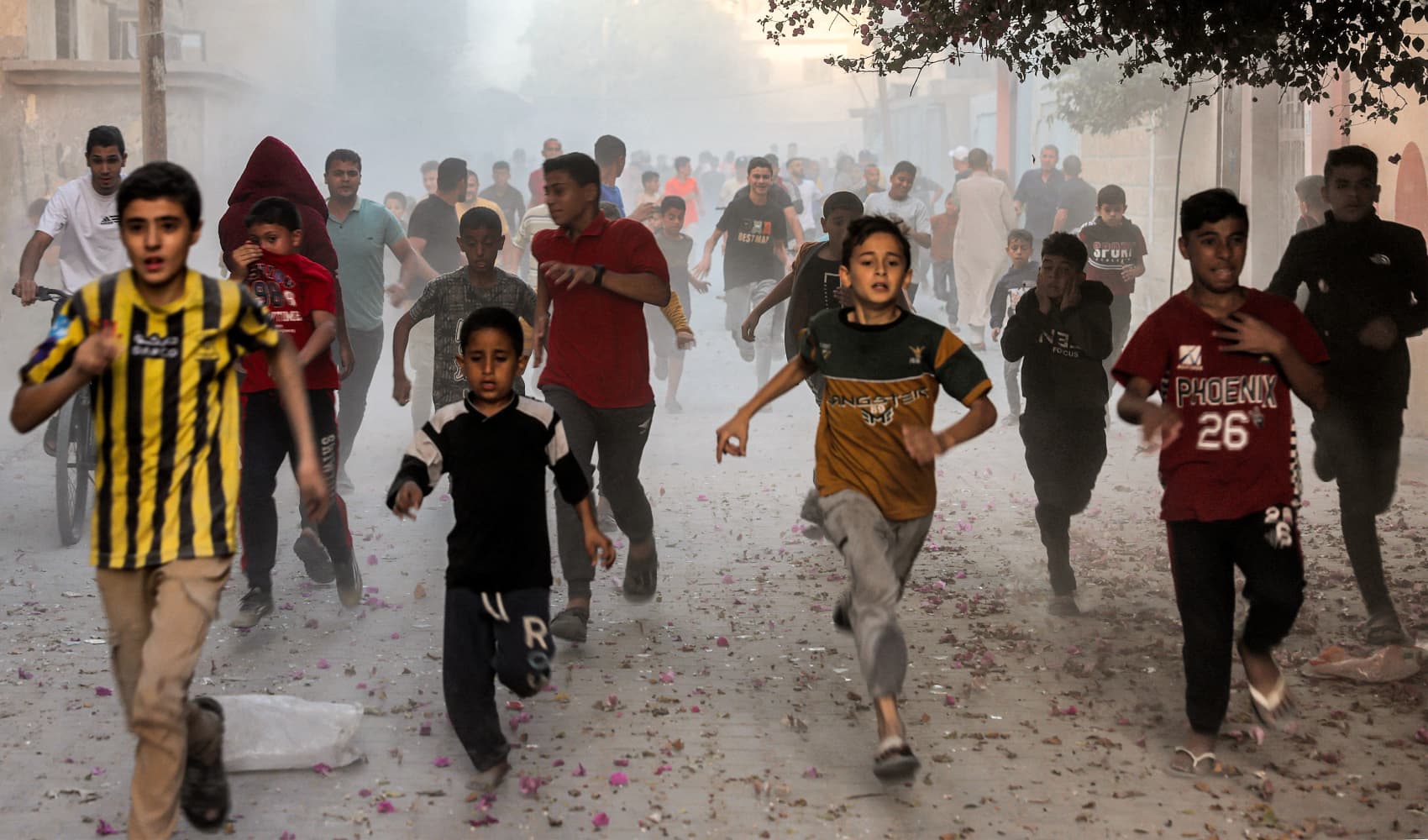
A Detroit-area couple trapped in Gaza like hundreds of other U.S. citizens described the roar of bombs and the fear of not making it home after the outbreak of the Israel-Hamas war.
Unable to leave, Zakaria and Laila Alarayshi hunkered down.
Watch NBC6 free wherever you are
>“I was crying," Zakaria Alarayshi, 62, told reporters Wednesday at the Arab American Civil Rights League offices in Dearborn, Michigan. “Everyone was scared. Bombs everywhere. When I go to sleep, we cannot sleep. Maybe I’ll sleep in a chair for 30 minutes a day."
He feared the bombs eventually would find them.
Get local news you need to know to start your day with NBC 6's News Headlines newsletter.
>“If I’m going to die, OK, I don’t care. Die, die," he said.
The Alarayshis were among the U.S. residents who were able to evacuate from Gaza following the Oct. 7 Hamas militant group surprise attack on southern Israel and the subsequent Israeli bombing campaign and ground invasion.
Some 500 to 600 U.S. citizens had been trapped in Gaza since the start of the war, according to the White House. President Joe Biden said 74 Americans with dual citizenship were evacuated on Nov. 2.
Zakaria and Laila Alarayshi, who live west of Detroit in Livonia, recently returned after finally being allowed to cross the border into Egypt. They were visiting family a week before the Hamas attack and said they remained in their home in Gaza until ordered by the Israeli government to evacuate, Zakaria Alarayshi said. Then, they fled to the home of his wife's family.
Sleep was scant, as was water and food. Often they only had cake to eat and tea to drink. There was no electricity.
“I have my money, but we cannot buy nothing,” he said. “No food, no water, no nothing.”
Alarayshi said he was unable to get answers from U.S. officials and reached out to the Arab American Civil Rights League for help.
Reaching safety was exasperating. About a half-dozen times they were denied entry into Egypt, said James Allen, Arab American Civil Rights League chair.
“The first list that came out of citizens that were allowed to leave included Zakaria but did not include Laila," Allen said. “Being the man that he is, he wasn’t going to leave his wife in harm’s way.”
The U.N. Office for the Coordination of Humanitarian Affairs said Wednesday that about 15,000 people fled the war zone in north Gaza on Tuesday, compared to 5,000 on Monday and 2,000 on Sunday.
The number of Palestinians killed in the war has passed 10,500, including more than 4,300 children, the Hamas-run Health Ministry in Gaza said.
More than 1,400 people in Israel have been killed, most of them in the Oct. 7 Hamas attack that started the fighting, and 242 hostages were taken from Israel into Gaza by the militant group.
“I’m happy to be here. Just all my mind is back home with my kids and my family," Zakaria Alarayshi said.
______
Williams reported from West Bloomfield, Michigan.



